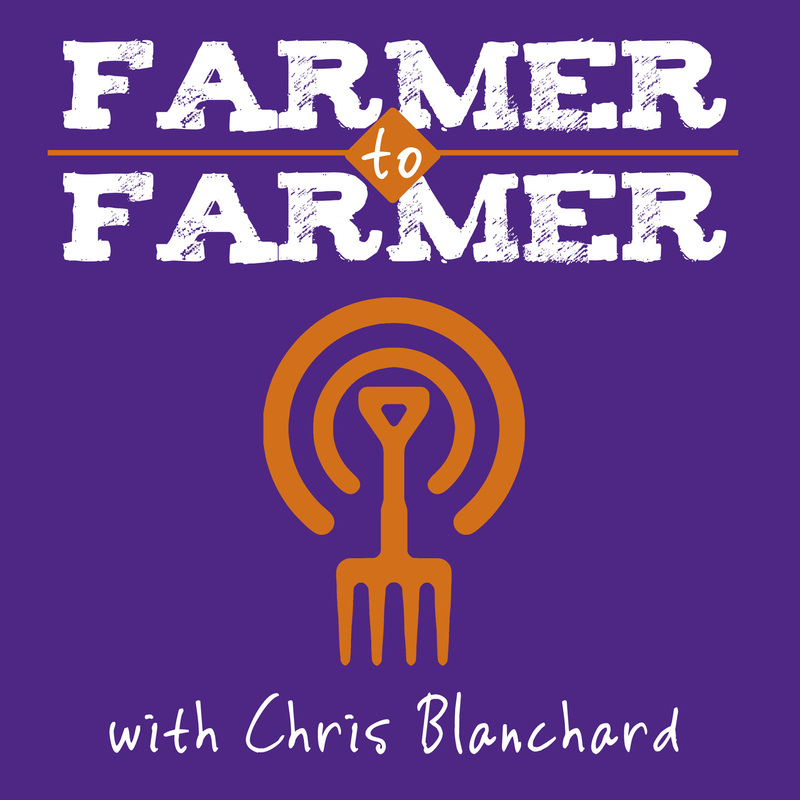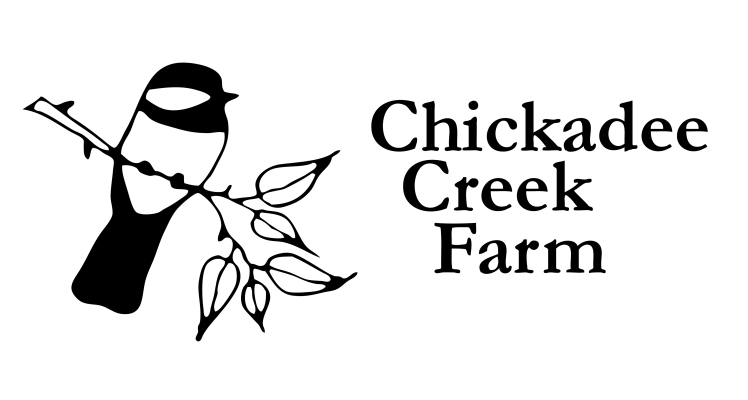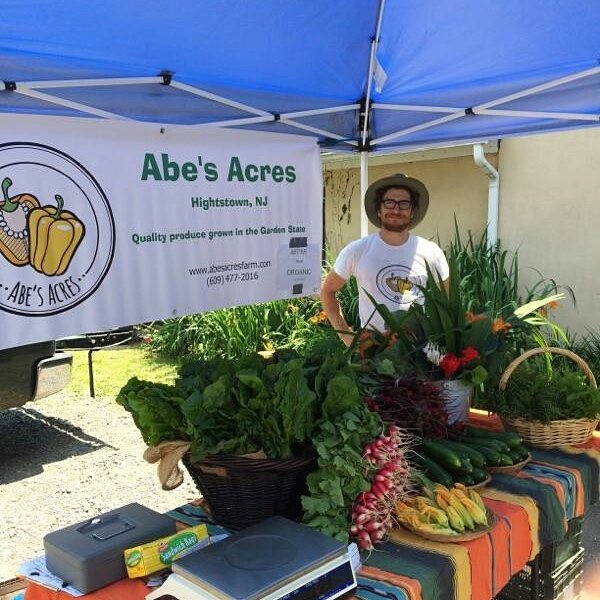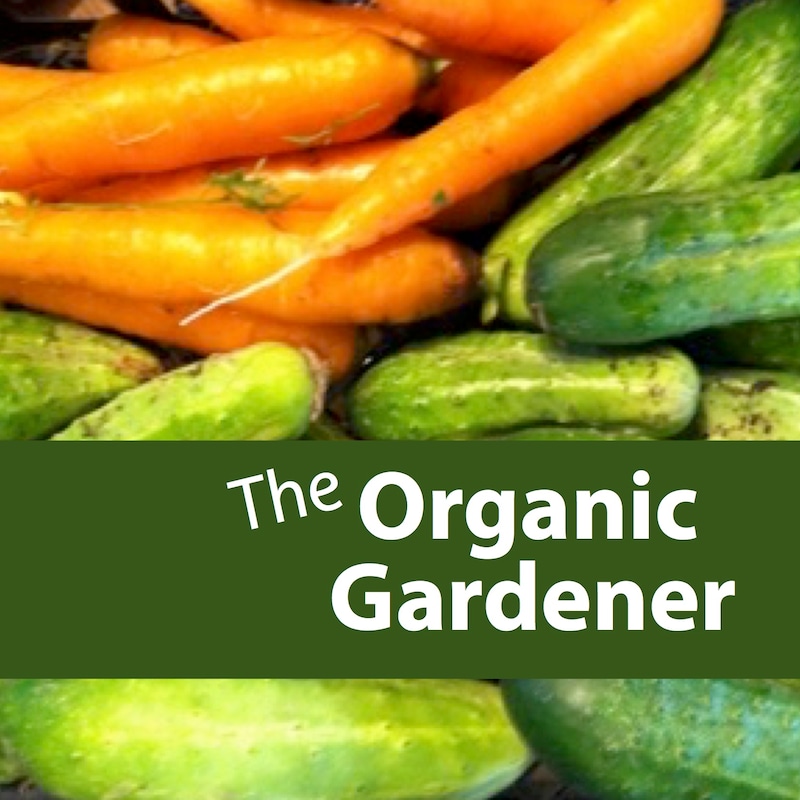
Shownotes
Abe’s Acres – Hightstown, NJ
Here’s the RAW Version of my interview with Gabe Siciliano from Abe’s Acres. For the most part. Sorry about the typing, I really notice it. I hadn’t figured out how to split the tracks yet recording with zoom this but I’m still having sound problems??? Episode 222? 240? STRANGE….
My property stretches across two counties.
How big is your place?
My great grandfather started acquiring land during the new deal. It’s 276 acres total. I am not growing on that much of it.
I’m growing on about an acre. I ultimately want to grow on 9 acres in total cultivation, 6 of it would be in production on any given year I think that’s about the maximum a person can manage with about 5-6 employees and still maintain some sanity. If you’re doing mixed annual vegetables.
In an ideal world I’d like to add some additional acreage of dry beans
a product that very few people are doing in
that’s a whole different beast
interested in breaking into at some point in the future
vegetables that’s what I know
We’ve been working on a garden book for years, but it takes a lot of time. I always tell people I don’t understand the blank page, why sit and stare at a white piece of paper because I always have a million projects. If I don’t have a vision for it or see it right then and then why push myself?
Because at the right time I’m gonna hear it and I will know the whole thing and we just banged it out over Christmas break, we only got through lessons 1-6 and the others will come out in June. I actually bought the domain names last summer and then just one day driving home from school I couldn’t stop I could just hear the lessons and the table of contents it just started pouring out of me!
I’m a bit out of funk with my podcast, cause I teach full time, don’t hesitate to put me on hold. Do you have any questions? Do you listen to podcasts?
I listen to tons of podcasts!
When I’m working. Especially when it was just me! Even before that I was working at different apprenticeships. Listening to podcasts like after working on 6 acres of carrots.
Farmer to Farmer one of the growers I was apprenticed to was on there.
Serialized Fiction Podcasts
Stuff you missed in History class
I’m never gonna run out of podcasts… Im proud or maybe ashamed to admit I finished Radiolab this summer. But this is the first one I’ve been in which is interesting cause I spend about 10 years a day listening to podcasts.
Well next year you’ll have your own and you sound like you’ve had a lot of things to share! You sound like you are.
Farmer to Farmer with Chris Blanchard.
Welcome to the Organic Gardener Podcast
Welcome to the Organic Gardener Podcast today Gabe Sciliano from Abe’s Acres! It’s Monday February 12th. It’s a chilly day outside my window, it says it’s -19º outside my window. I have someone from NJ, Gabe Siciliano, he’s a fellow podcast listener and it sounds like he has an amazing story to tell us so Welcome Gabe!
I’m Gabe Sicliano, 26 years old. My farm’s called Abes Acres Farm after my grandfather Abraham. He came to the US in the late 1900’s from Russia as a jew fleeing the
His dream was always to be a land owner and to farm it
arrived in NY spent some decades in Brooklyn
saved money
moved to NJ
The government had a lot of subsidized programs to make it easy for people to acquire land started all these ag programs
Moved to NJ started farming
had a decent go, not as successful as he would have liked so since I got into farming I decided to name my farm after him to keep that dream alive!
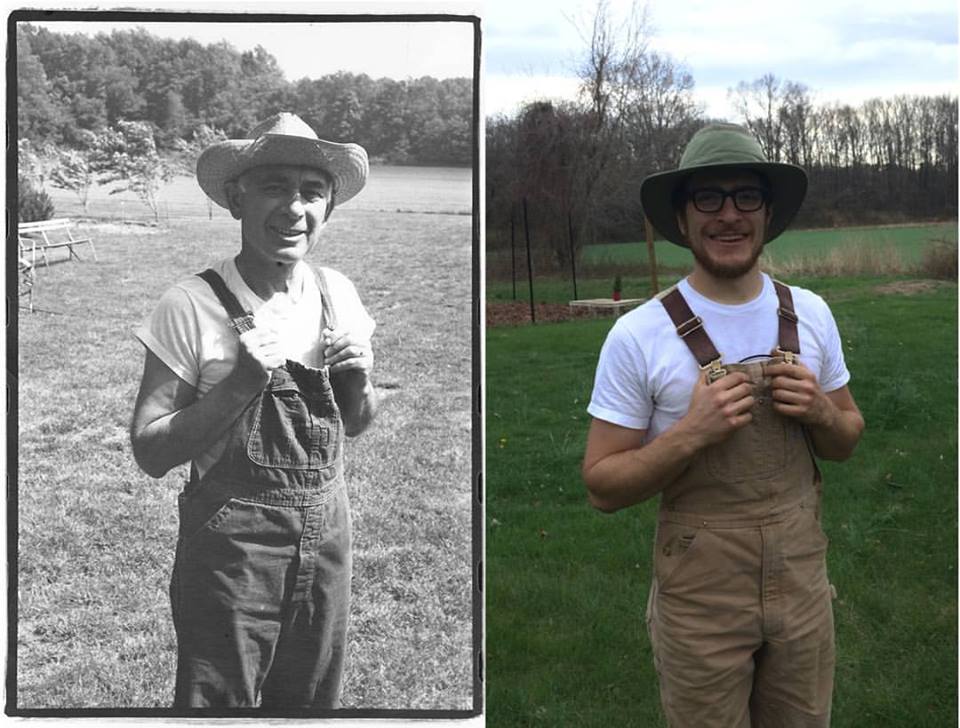
Abe With His Grandpa Joe
Sounds like you’re another Rockstar Millennial amazing 26 you have 6 employees and running this place by yourself?
No, no, no. That’s my ultimate goal!
This was my first season! Last year it was just me on an acre!
Well that’s even harder!
A lot to bite off, probably more then I could chew
A lot of tasks that go 4 times as long if you only have one pair of hands.
So I found out about Abe because I just put up my episode I did with Tom Natan and he was in NJ and stopped in a restaurant and bought produce from your little stand?
Tell me about your first gardening experience. Did you grow up in NJ?
My grandfateher Joe in his semi-retirement he was always in the yard working on this.
Did he grow organically is that how you learned.
in terms of organic growing he didn’t grow up that way it was just that’s
he would have said IDK anything but this is what I do, all his methods were organic
production scale organic
Apprenticeships
Quail Hill Farm Peconic Land Trust on Long Island
150 members
learned a lot from the farm director
one of the earliest proponents of CSA
Jes Peter
Chickadee Creek Farm in Pendelton NJ
learned my craft and what it takes to grow on a production scale using organic methods which is a lot harder then the equivalent of conventional growing.
Dd you learn some tips or tricks? My husband dug up this area I call the mini farm his goal has been to grow all our food, I can’t even imagine what he grew this year was huge I can’t even imagine how people get to that production point.
The biggest of which is time management and efficiency. Time is money every moment hands are not in the task are not making money and farmers have to make all their money in a small part of the year we are longer season all of your money is made in that part of the year but there is not much light not much growth
waste less time
looking for ways to take less time
how many times ma I picking up and putting down a tool
standardized
fitted to tools you have available
JMFortiers 30 inch beds with walkways geared towards a walk behind tractor
any given farm is based on the tools that they use
I would also say that having a really realy good pest managment strategy
for organic growers a lot of pest management comes down to pest exclusion barriers
fabrics like
remay
agribond
put over lows of crops susspended on wire hoops
what they do is phuysically exclued pests
permeable to
air
water
sun
pinned down using sand bags
keep pests out
don’t get the tension right or
gaps are between remay
summer squash and winter squash
squash bettel
vine bore
burrows in bottom of plant
to keep pests off plants until they start flowering
remay keeps out the insects
once they flower you can take it off so they can fruit
larger amounts of one particular thing
a couple of squash plants
but if you are grwoing 200′ of squash plants you’re almost sure your gonna atract pests
there was a lot there!
NO it’s aweomse
My listeners are always like don’t interupt
something that grew well
sweet peppers
my favorite vegetable
grow to eat
I had really fantastic yeidls
fruit was exceptional quality with little pest or disease pressure
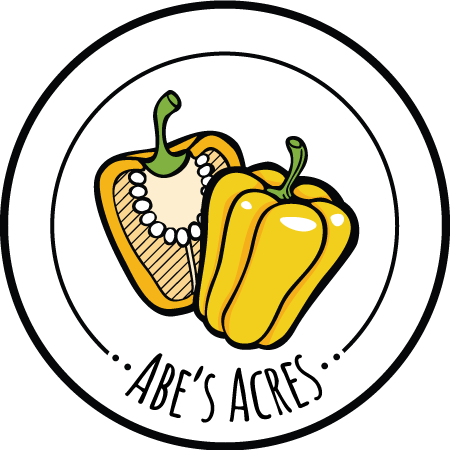
My favorite was a F1 hybrid called
Revolution
from Fedco I think
the season this year wasn’t quite as hot as last year
Because once the temps go above 95º or so the peppers start dropping flowers without making fruit.
It stayed very close to that temperature
a few brief spells
past that
seasoned peppers
Past a certain point they’ll drop flowers…
So all sweeet peppers start out as green until they’re ripe some will riped to red
purple ones
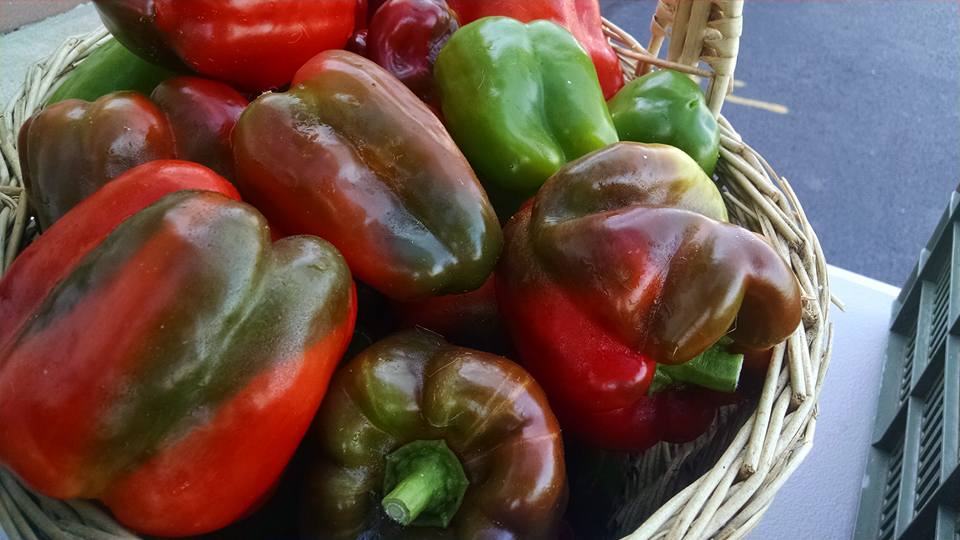
chocolate will ripen to a brown color and then get brownish red
that’s why colored peppers cost more, they’re on the plants longer and requiree more field care.
Can I ask a quesiton? Do they call them that because they’re brown or do they have a chocolate flavor?
They have a very chocolately color. They’re delicious! They’re not an incredibly high yielding plant. It’s a really early variety of pepper. It’s one of those things that looks a little bit different so it might not be super popular at farmer’s market. People wonder what does that taste like? But they’re very sweet!
Tell me about something you are excited to try new or different next year!
I’m gonna be doing a lot more root crops for winter storage. In particular I’m gonna try bunch of carrots to see what grows well in my soil. That’s one way market farmers can extend their profits through the off season by storing veggies.
Storing Root Crops
- rutebagas
- turnips
- carrots
- beets
- kholrabi (technically not a root but stored the same way)
- radishes
- cabbage
Things that can be stored in cold storage and sold throughout the winter. Keeps you in touch with your customer base and keep some income flowing.
I had hoped this season to put up a high tunnel but Idk if that’s in the cards then I could have grown greens throughout the winter.
Where do you market? Where are you gonna sell carrots in the winter? Do you have a CSA or a grocery store? How would you supply your customers in the winter.
This year I primarily worked with restaurants. It was easier to make my budget work if I knew exactly how much I’d be selling. So I worked out ahead of time how much I’d be selling and I had at one of the restaurants a market stand.
How often did you go there? Once a week?
I also sold some produce to a local health food store one town over. In the future I’d like to do more farmer’s markets and less work with restaurants. Maybe work with one or two restaurants growing specialty crops because I enjoy doing that.
bread and butter
My bread and butter is working at farmer’s markets. I love growing the food myself and talking about the product! Talking about what it takes to grow something. A lot of people are divorced from food production. Don’t understand what it takes to get it to the store shelves and that it takes to grow food human hands.
Applying to get into 2 markets a week and keep working with a couple of the restaurants.
So much there! Was it from doing your apprenticeships that made you reach out to restaurants. How do those questions go but I think I would be nervous going to a chef.
Those conversations usually go something like. What do they use. How much do they use. In the height of summer a restaurant is going to be using a bunch of tomatoes but not a ton of basil. Some places are interested in basic crops and others are going to be interested in specialty crops.
There’s a green called mache that has a buttery silky texture. It’s hard to find because it’s not as popular in the US as it is in Europe.
What they need and how much to plant and expected yields.
I ate that in Paris. It’s in those mixes more and more. Is it hard to grow?
It was a challenge there was not a lot of information in English and not on any kind of production scale.
Book End Crop – Mache
It’s a book end crop, grows better in the fall then the spring. That was the success. It likes the cool. Only get one or two crops out of it, management of successions is crucial.
got any tips for managing successions? I feel like I need to take the seed packet and say I’m gonna plant these on this day and these on this day, not go outside with the whole packet because it ends up in the ground.
Crop Plan
Any farmers is going to have a crop plan done before they start the season. And that crop plan and the dates for planting are of course not set in stone not only because of the weather but also because they’re are so many things going on a farm or garden that you may not be able to get things on time
Having a good template for succession or when certain things are getting seeded and when things are ready for transplant is absolutely essential not just for a smooth operation but to make sure you have what you have the supplies for things
I’d be getting a beets once every month or so once the season starts. It might be hard in the beginning but once you have it it’s great to have that document. Working from a template is very very good!
That’s interesting because we came up with our first book, it’s called the 2018 Garden Journal and Data Keeper and it’s all based on that keeping track of things I need more planning and things. We came up with the 2018 Garden Goals Challenge. People were really downloading that so I think they will love this!
Tell me about something that didn’t work so well this season.
I would say the thing there’s always a lot of stuff that doesn’t go the way you want it to. The biggest problem was how wet and cold of a spring we had. It snowed before I was gonna do my primary tilling. The first year I’m sure you know the worst thing you can do is till when it’s wet and cold. It stayed cold and wet into April.
Do to the fact it was just me trying to get all the prep done when it was April I missed some early successions and that sort of tripped me up for the rest of the year. This year if my schedule says get out there if I have to stay out for 14 hours I’m gonna stay on schedule.
Help Needed
Or you might have to get some help because that sounds a little tough. Have you thought about getting an intern? or a woofer? Because it sounds like you have a lot of experience.
I have reached out to the local high school ag program because I can’t pay anyone right now. That would make things so much easier for me, hand-weeding is a long chore. I have also talked to some people about a business partner sharing the equity. It’s really a lot to handle one other pair of hands would make things go so much faster.
To me one of the hardest parts is balancing between being a farmers and doing all the work on the farm and then being the sales person and going to market?
Balance Tasks
I spent a lot of time making deliveries and then there was no one in the field and I’d have to make a choice between ok, do I make these deliveries or do I let some field work slide for a couple of days. having another set of hands, someone else to work with would make those decisions easier. Definitely somethings I had a lot of trouble with this past season.
Do you do a lot of reaching out at this time of year?
This is the time of year where I’m sitting down with chefs and asking How much they’ll need? When they’ll need it? This goes back to planning. Really good effective planning ahead of time. These are the conversations that are difficult have time during the season. You don’t want to just jump in and be like I have these 100 lbs of extra tomatoes I have. It really helps for planning.
Can I ask a questions about, I brought some herbs into a restaurant I was working at and they were like we’re not gonna use them because I’m not an official farm.
No, IDK if it’s different in your state. You could probably get an official certificate from your extension. If you have something a chef...
